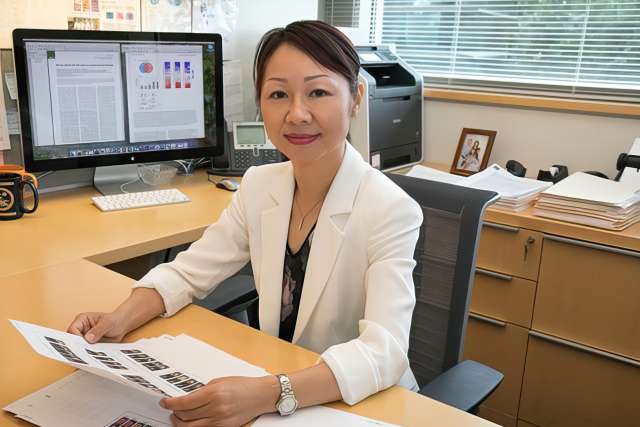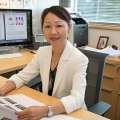UCLA Jonsson Comprehensive Cancer Center member Dr. Lili Yang has received a National Institutes of Health (NIH) Director’s New Innovator Award of $2.3 million, in recognition of her breakthrough research developing new ways to genetically program human blood stem cells to attack cancer tumors.
The human immune system comprises a small, powerful network of blood cells that is able to detect and destroy almost all harmful invasions by germs or viruses, yet is often unable to fight against deadly diseases such as cancer. Our bodies often do not mount an effective immune response to cancer because the disease is the uncontrolled division of our own cells.
Dr. Yang’s earlier research focused on special white blood cells called T cells, which serve as the “foot soldiers of the immune system” (attacking bacteria, viruses and other invaders that cause diseases). Among these T cells is a smaller group of cells called invariant natural killer T cells (iNKT), which have a remarkable capacity to mount immediate and powerful responses to disease when activated, like a small special forces unit among the foot soldiers.
Dr. Yang, assistant professor of microbiology, immunology and molecular genetics, is building upon her past work to develop a new way to model how scientists can genetically program human blood stem cells to become iNKT cells. With this knowledge, she and colleagues hope to provide a roadmap for future therapies designed to increase the number of iNKT cells in the blood, creating more “special forces” cells and increasing the body’s ability to fight off the diseases these cells affect, such as cancer.
“The potential for iNKT T cell receptor-based gene therapy is very exciting because it is very different from conventional T cell receptor-based gene therapy, which can only target specific types of tumor and a certain group of patients,” said Dr. Yang. “The kind of iNKT T cell receptor gene therapy we are investigating could have universal application, treating many types of cancer and a large group of patients no matter what types of tumor they have. It holds tremendous promise for the future.”
The NIH Director’s New Innovator Award is designed specifically to support unusually creative new investigators with highly innovative research ideas at an early stage of their career.
Dr. Yang’s research was additionally supported by the National Cancer Institute of the National Institutes of Health, the California Institute for Regenerative Medicine, the Concern Foundation, and various UCLA entities including the Broad Stem Cell Research Center, the Translational Consortium in Engineered Immunity, the Department of MIMG, the David Geffen School of Medicine, the UCLA Clinical and Translational Science Institute, and the Jonsson Comprehensive Cancer Center.




